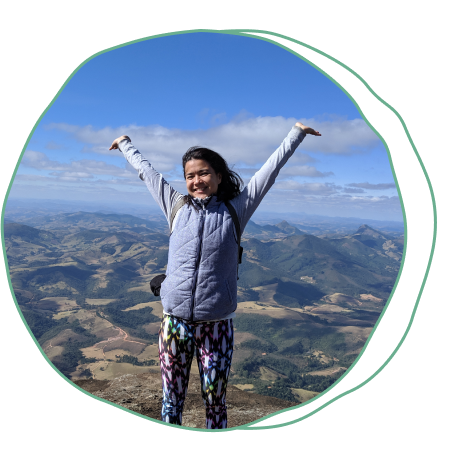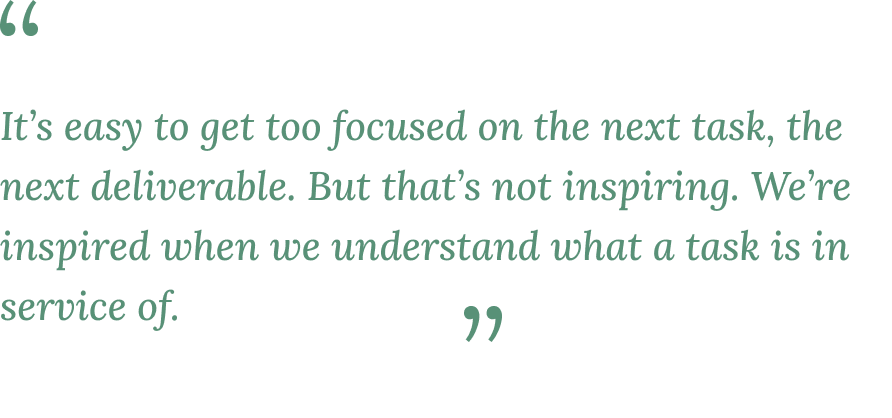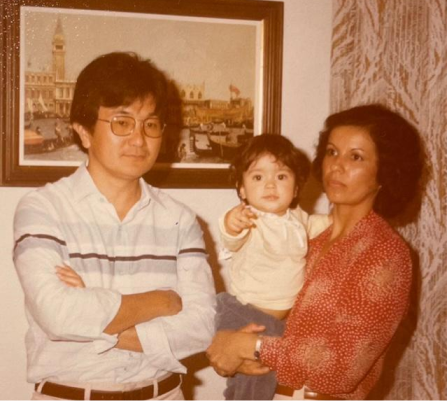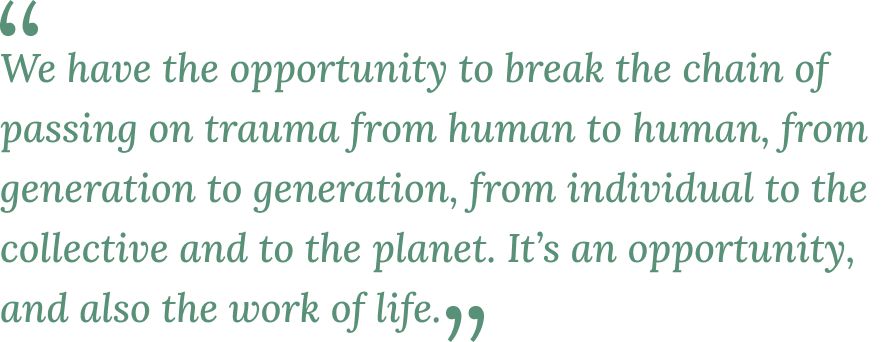One hour with: Elsie Iwase
Meet AGO Strategy Director Elsie Iwase: avid SCUBA diver, high-volume reader, and sound sleeper; lover of complexity, humanity, and ontological frameworks.

Most of the people on our team came looking for AGO after many years in the for-profit world, in search of a more fulfilling way to spend their 80,000 hours. AGO Strategy Director Elsie Iwase is no exception. She spent 16 years leading projects for large for-profit organizations, small companies, and governments, as well as nonprofits, foundations, and cultural organizations.
What we love and value most about Elsie isn’t her rigorous analytical approach, or the way she leans into complexity to solve problems—although we love both of those things. What we love most is how much she cares about humans, and creating more just and beautiful ways for them to live and connect. What we love most is her optimism, and her respect for the wisdom of nature, elders, and Indigenous traditions.
Following are some things you might like to know about Elsie, including what she was doing before AGO, how she spends her free time, and what five or six books she’s (con)currently reading.
Q: Tell us about your role as Strategy Director. What do you do?
The first one is to bring a systemic view to how we run our programs. Our partners' goal—and our own—is to create long-lasting, positive systemic change. So part of my role is creating frameworks and tactics to support them in understanding how their work fits in a bigger network of forces and agents, and then fostering the types of interactions across the system that bring about social change.
The second one is to support an internal culture where people feel celebrated and their work is valued and acknowledged. It’s easy to get too focused on the next task, the next deliverable. But that’s not inspiring. We’re inspired when we understand what a task is in service of. A big part of my role is helping the team always see the big picture, the ultimate impact of our actions and the good we are creating with our work.


Q: What led you to AGO?
One day Carla [Yuen] sent me an email about a freelance climate justice project with AGO. When we talked on the phone, she explained that we’d be working with Paul Hawken, renowned author and activist, to amplify the message of Regeneration and to make it compelling to audiences he’s not going to reach with the book. It was perfect.
You don’t need to tell Gillian [Gutierrez] this, but I’d do this work for free.


Q: Can you tell us about your work on Regeneration?
The problem is the doom and gloom that leaves people helpless and hopeless. It’s a crisis of imagination. People can’t imagine what is possible. Nobody is exposed to a narrative about what happens when we do take action, which is what regeneration is about.
So the goal is to bring forth a new narrative around climate. Every single person is already a regenerator in some way. It’s innate to our human nature to protect things that we care about. We just need to reconnect people to that sense of caring.
Working on this has been transformational for all of us. We learned new ways of being and thinking of ourselves in the world. The project is figuring out how to bring that message to 7 billion people.


Q: And did you figure out how to bring that message to 7 billion people?
Q: Tell us about where you're from. How does your upbringing inform the person you are today and the work you do?
In the last 11 years, since I've been in the US, a lot has changed. I did a life coaching program because I wanted to understand the human behavior cycle from within. It’s called ontological coaching, and the focus is on the being, not the doing. It’s not about what you can “fix,” but more about how you relate to things. Once you are aware of that new way of seeing, you can implement that change in every area of your life.
All of this has influenced my leadership style. I have a much easier time relating to other people’s emotions and expressing my own. Now I acknowledge that no emotion is bad, and that we're all humans in our beautiful and unique expressions.


Q: What are your interests outside of work?
I’m part of an art incubator called Design Science Studio for global creators who are envisioning a future that works for 100% of life and creating art to help share that possibility with the world. It’s been formative and inspiring to be part of a cohort of artists working towards a regenerative and more beautiful future.
I’m also an avid SCUBA diver. I love the ocean, and it's such an honor to enter a world where you are just a guest observing beautiful creatures living at a different pace, in an environment with different rules. It has taught me so much.


Q: What gets you up in the morning? What keeps you up at night?
I don’t think there’s anything that keeps me up at night. I’m a great sleeper!
But, seriously, I don’t think there’s any wrong or evil in the world that isn’t part of the great dance we are all here to dance. Pain is real and part of life, but the suffering is optional. So much of our individual and collective trauma is a gateway to transcendence. We have the opportunity to break the chain of passing on trauma from human to human, from generation to generation, from individual to the collective and to the planet. It’s an opportunity, and also the work of life.


Q: Have you read any good books lately?
Right now I’m reading The Ministry for the Future by Kim Stanley Robinson, The Choice by Edith Eger, and What Is Life? by Paul Nurse. And, yes, I’m the kind of person who reads multiple books at the same time.


Sign up for our lightweight newsletter
Insights and resources for important work